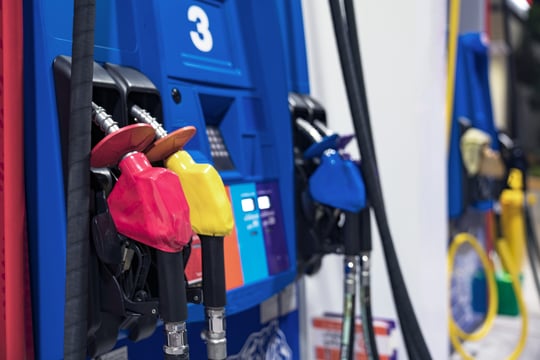Fuel costs are on the rise. In fact, today's fuel prices are the highest ever in United States history. Inflation, interest rates, and rising fuel costs are hitting small businesses right where it hurts—in profit margins that are shrinking at ever-increasing speeds. Semi-trucks are notorious for fuel consumption and even older rigs sell for over 85% more than 2020's prices, which is why many companies have made the switch to pickups and panel vans for their fleets, some even entertaining self-driving vehicles.
Self-driving vehicles could help optimize everything from long, cross-country shipping routes to short, local deliveries, and even help bridge the driver shortage. And it's not as far off as you might think. In fact, it's predicted that one in ten vehicles on the road will be Autonomous Vehicles (AVs) by 2030.
Fleet management software could be the answer to the challenges brought about by ongoing vehicle and labor shortages. Truckers have been the backbone of the American economy for decades, transporting over 10 billion tons of freight in 2020 alone. That's over 72% of all domestic freight. To meet this challenge, many companies turn to small fleet trucks as a cost-efficient and customer-friendly solution to meet their needs.
4 Benefits of Fleet Management Software with GPS
Fleet management software with GPS solves many of the challenges that occur in the day-to-day management of a small fleet.
1) Optimized routes
The boost in online shopping exacerbated by the pandemic created a need for fast, reliable, and cost-effective delivery methods. As the crisis subsides, consumers still expect this same type of service. For example, according to Square's Future of Commerce 2022 report, 64% of consumers prefer delivery, and 38% of businesses plan to continue offering same-day delivery even after variants have subsided.
But problems can occur during times of increased traffic or cramped roads because of construction projects. Delivery drivers need to navigate these obstacles and optimize their routes in real-time. Fleet management software with GPS can store intelligent data regarding a driver's routes, which then uses advanced machine-learning algorithms to recommend appropriate, alternate routes when necessary.
Trucking companies can save fuel and optimize fleet performance with better, more intelligent shipment routing. Fleet management software solutions can allow small fleet trucking companies to combine all shipping requests into one large route. The software uses GPS technology and merges each pickup point with each drop-off point, creating one optimized route with the fewest stops. This approach helps ensure higher productivity, minimizes idling times, maximizes small fleet fuel efficiency, and thereby increases fuel savings—which is a must with current rising fuel costs.
2) Greater fuel efficiency and fuel savings
Fleet management software with GPS can help fleets become more efficient. The data collected from vehicle sensors and other sources can monitor driving behavior and predict maintenance requirements, in addition to optimizing driving routes and patterns.
With knowledge of upcoming construction or traffic jams along a route, fuel savings add up as the software directs your drivers to a better, more optimized route for conditions, taking into account a driver's specific habits.
Properly inflated tires are also a key factor in maintaining vehicle fuel efficiency. According to the US Department of Energy, tires with just 1 psi less than called for can reduce fuel efficiency by as much as 0.1%, and every point of psi lost results in 10% faster tire wear. Properly inflating tires can improve your fleet's gas mileage by up to 3%.
3) Timely vehicle maintenance
Maintaining your fleet isn't just a safety issue. Proper maintenance ensures your small-fleet trucks operate at optimal performance for the duration of their service years. Well-maintained vehicles also preserve original fuel efficiency. For example, neglecting maintenance can cause sediment buildup in the fuel system and potentially take a truck out of commission before it's paid for itself and made subsequent profits.
Service intervals for maintenance are critical to prevent expensive repairs. Trucks have several systems to inspect, and each component has a different recommended maintenance interval.
4) Enhanced loading and weight distribution
Every vehicle has an optimal weight limit. It's important not to exceed the stated weight limit for your small trucks and vans. Proper, even weight distribution helps drivers avoid maintenance issues prematurely and even helps improve fuel efficiency.
Properly training your drivers in correct loading techniques can ensure your vehicles are never overloaded, and that weight is distributed accordingly between the front and rear of the vehicle.
Is Fleet Management Software with GPS the Answer?
GPS and fleet management software can help you reign in your trucks' fuel expenses. Learn more about what Linxup can do for your small truck fleet.

